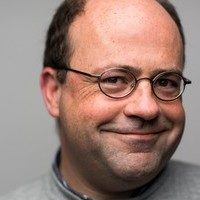
We are pleased to announce that Professor Gerard Roe has been awarded the John F. Nye Lectureship by the American Geophysical Union.
John F. Nye is considered one of the most important pioneers in glaciology. He was trained in physics at Cambridge, and made numerous fundamental discoveries about the physics of ice, both at the small scale and at the scale of glaciers and ice sheets. He also worked on the response of glaciers to climate variability and change. Nye spent a sabbatical at UW many years ago.
Like John Nye, Gerard Roe is British, and was also originally trained in physics (at Oxford). He has made significant contributions to subjects as diverse as the sensitivity of climate to carbon dioxide, the physics of stream erosion, and the causes of ice ages. The Nye Lectureship recognizes Gerard’s groundbreaking research on the variability of mountain glaciers and the attribution of glacier retreat to anthropogenic climate change. An essential insight arising from this work is that mountain glaciers are especially effective integrators of climate change, making them one of the strongest signals in the Earth system demonstrating the human impact on climate.
Gerard’s work has had significant real-world impact. For example, he advised an undergraduate (at the time) from the UK who spent a semester visiting him, leading to a Nature Geoscience paper entitled “Increased outburst flood hazard from Lake Palcacocha due to human-induced glacier retreat.” That paper was the key basis for a first-of-its kind lawsuit alleging that a fossil fuel emitter is liable for an increase in glacier-related hazards in a Peruvian community. This is a compelling example of how fundamental, curiosity-driven research plays an important role in society, often in unexpected ways.
In addition to his stellar record in research, Gerard is known for his mentorship skills and his ability to communicate complex topics in simple and useful ways for non-expert audiences, both things that John Nye was also known for.
Gerard will give the Nye Lecture at the 2024 AGU Fall Meeting in Washington, D.C. in December.